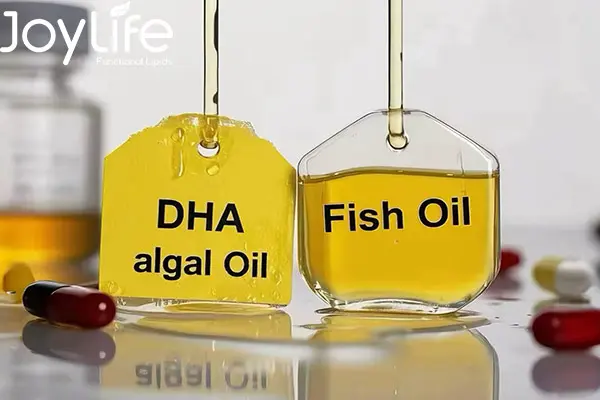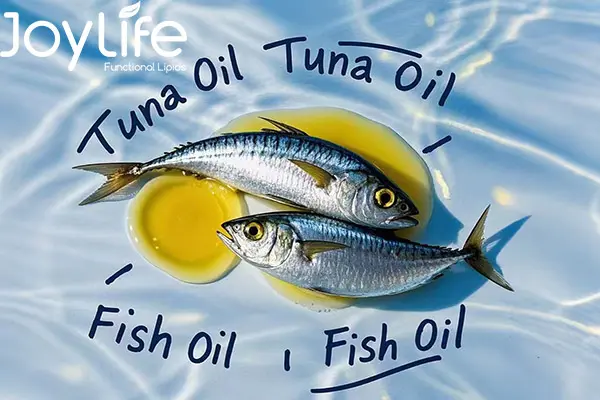



What is Omega-3 fish oil?
1.Omega-3 Fish Oil is a dietary supplement derived from the tissues of fatty fish, such as salmon, mackerel, sardines, anchovies, and tuna. It is rich in two essential omega-3 fatty acids: eicosapentaenoic acid (EPA) and docosahexaenoic acid (DHA). These fatty acids are crucial for maintaining overall health and are known for their anti-inflammatory properties and numerous health benefits.
EPA (Eicosapentaenoic Acid):
Supports cardiovascular health.
Reduces inflammation in the body.
May help with mood regulation and mental health.
DHA (Docosahexaenoic Acid):
Essential for brain development and function.
Supports eye health and vision.
Important during pregnancy and infancy for fetal brain and eye development.
ALA (Alpha-Linolenic Acid):
A plant-based omega-3 found in flaxseeds, chia seeds, and walnuts.
Can be converted into EPA and DHA in the body, but the conversion rate is low.
Heart Health:
Reduces triglycerides (a type of fat in the blood).
Lowers blood pressure.
May reduce the risk of heart disease and stroke.
Brain Health:
Supports cognitive function and memory.
May reduce the risk of neurodegenerative diseases like Alzheimer's.
Helps with mood disorders such as depression and anxiety.
Anti-Inflammatory Properties:
Reduces chronic inflammation, which is linked to many diseases.
May help manage conditions like arthritis and autoimmune disorders.
Eye Health:
DHA is a major structural component of the retina.
May prevent age-related macular degeneration (AMD) and dry eye syndrome.
Pregnancy and Infant Development:
Supports fetal brain and eye development.
May reduce the risk of preterm birth and improve infant cognitive outcomes.
Skin Health:
Helps maintain skin elasticity and hydration.
May reduce acne and inflammation.
Joint Health:
Reduces stiffness and pain in conditions like rheumatoid arthritis.
Fatty Fish:
Salmon, mackerel, sardines, anchovies, herring, and tuna.
Supplements:
Fish oil capsules, liquid fish oil, or cod liver oil.
Fortified Foods:
Some eggs, milk, and yogurt are enriched with omega-3s.
The American Heart Association (AHA) recommends eating fatty fish at least 2 times per week.
For supplementation, a common dosage is 250–500 mg of combined EPA and DHA per day for general health. Higher doses may be recommended for specific health conditions under medical supervision.
6.Considerations:
Purity and Quality:
Choose fish oil supplements that are molecularly distilled and free from contaminants like mercury and PCBs.
Look for third-party testing certifications (e.g., IFOS, USP).
Sustainability:
Opt for fish oil sourced from sustainable fisheries (look for certifications like MSC or Friend of the Sea).
Side Effects:
Generally safe, but high doses may cause mild side effects like fishy aftertaste, indigestion, or diarrhea.
Consult a healthcare provider if you are on blood-thinning medications, as omega-3s can increase bleeding risk.
Omega-3 fish oil is a powerful supplement that provides essential fatty acids (EPA and DHA) with numerous health benefits, including supporting heart, brain, and joint health. Whether obtained through diet or supplements, omega-3s are a vital component of a healthy lifestyle. Always choose high-quality, sustainably sourced products and consult a healthcare professional for personalized recommendations.
7.Conclusion:
* Joylife’s main type of Omega-3 fish oil
Fresh stock for Natural made Omega3 Fish oil and omega fish oil powder, Joylife Nutripharma Inc
https://www.joylifenutripharma.com/product/product-categories/omega-fish-oilpowder.html
|
Product name |
Assay |
main application |
||
|
total ω-3 /% |
EPA/% |
DHA/% |
||
|
Fish oil powder |
12% |
5.5-7.5% |
4-6% |
milk powder,
special medical food, |
|
28%-30% |
16-18% |
9-12% |
||
|
Fish oil 1812EE/TG |
/ |
≥18% |
≥12% |
health food, dietary supplements, special medical foods, pet nutrition |
|
Fish oil 3624 EE/TG |
/ |
≥36% |
≥24% |
|
|
/ |
≥7% |
≥11% |
||
|
Fish oil 7010 EE/TG |
/ |
≥70% |
≥10% |
|
|
Fish oil 5025 EE/TG |
/ |
≥50% |
≥25% |
|
|
Tuna oil powder |
DHA:7%,DHA:11%; |
infant formula, nutrition fortification food, dietary supplements, special medical food, pet food |
||
|
Tuna oil 24% DHA |
DHA :20-28%; DHA:EPA>4.5 |
|||
|
Tuna oil 28% DHA |
DHA :16-24%; DHA:EPA>4.5 |
|||